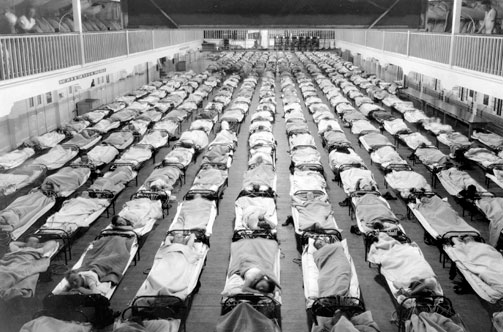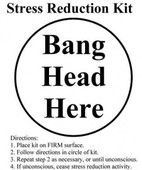Last week i chose two ways to deal with stress and got one assigned from the teacher. my results were pretty much more positive in terms of less stress during the day. Although stressful situations occur a lot around me the stress dealing activities are doing their jobs:
-To Do & Reminder page (procrastination)= actually helping, i keep track of my assignments and always find time to do them without making long hours or prolonged homework sessions
-Eat right (happy stomach -> happy health-> happy me)= Don't feel much difference but definitively make me less worried about me getting fatter and the feeling of guilt is gone
-Find Ways To Distract Myself (stay away from stress for a while)= Great actually spend more time with my friends laughing and having a good time instead of sitting on a corner and whine about my life and hitting walls because of anger...
the stress reduction process is actually working and i think there are many other ways to improve the living of students and also to improve the academic performance of them.
manny's class blog
Wednesday, May 15, 2013
Tuesday, May 7, 2013
Stress And Hormones
The two types of stress come in short term and long term.
Short term stress basically is what triggers fight or flight and quick response its effect is short depending on the situation.
Long term stress is more of a problem because it involves weakening of important body parts and function such as the immune system and the brain weakening the immune and causing injury to the brain.
my goals for stress reduction would be: * drum-roll*
-find ways to relax.. (i have never used any kind of drugs and never will)
-eat right
Short term stress basically is what triggers fight or flight and quick response its effect is short depending on the situation.
Long term stress is more of a problem because it involves weakening of important body parts and function such as the immune system and the brain weakening the immune and causing injury to the brain.
my goals for stress reduction would be: * drum-roll*
-find ways to relax.. (i have never used any kind of drugs and never will)
-eat right
Sunday, April 28, 2013
Prosthetic Limbs That Feel?!
The Ted Talk of the prosthetic arms that feel is found here
The Ted Talk talks about how some scientists created bionic limbs that have sensory outputs that allow the brain to pick up the feeling of something they touch. this seems crazy but it actually works it is amazing how science advances and helps people to recover from a variety of things. of course this is on its early stages because its not very practical for all the public and its roughly a fast of a response of a robot but it works. these scientists are working hard to make these arms to work as best as they can make them, it is not like a real arm but it really is worth to have because it enables you to do many of the things that you couldn't do with just one hand. there are many improvements to be made but it is really good to have this available for people that lost their arms in terrible accidents, war, etc.
the prosthetic limbs work with sensors places in other parts of the body to pick up the desired movement, it is very interesting to see and it makes the viewer think about the wonders of science.
The Ted Talk talks about how some scientists created bionic limbs that have sensory outputs that allow the brain to pick up the feeling of something they touch. this seems crazy but it actually works it is amazing how science advances and helps people to recover from a variety of things. of course this is on its early stages because its not very practical for all the public and its roughly a fast of a response of a robot but it works. these scientists are working hard to make these arms to work as best as they can make them, it is not like a real arm but it really is worth to have because it enables you to do many of the things that you couldn't do with just one hand. there are many improvements to be made but it is really good to have this available for people that lost their arms in terrible accidents, war, etc.
the prosthetic limbs work with sensors places in other parts of the body to pick up the desired movement, it is very interesting to see and it makes the viewer think about the wonders of science.
Friday, April 26, 2013
Remote Controlled
Remote controlled video is about a cockroach being controlled by using some type of mechanism in the Nervous system, i believe, this is a really odd experiment but it seems to work.
if possible comment what you think about these experiments and why so
There are always bad things with every new invention, this might enable people to set cameras and use as espionage tools but it also may be good to explore narrow pathways and all kinds of small environments
this is a really cool finding, who would have thought that people would be able to remotely control animals?
this might lead to trouble in terms of animal cruelty organizations and such but it might come in handy in some cases.
These videos are similar to the one i watched and they discuss some things in them:
3 questions of Friday 26th of April
What have i completed recently?
-i have been reading a lot and also been trying to keep up with the work and act responsible for once in my life
What have i learned recently?
-I learned many things:
1.signals in the spinal chord go afferent from the dorsal & efferent from the ventral side
2.parasimpathetic & somatic reactions are slow
3.many things about flu viruses in the book
just a few things of all the information covered.
Whats next?
- planning to read even more to finish my book on time and do all my homework this weekend
-i have been reading a lot and also been trying to keep up with the work and act responsible for once in my life
What have i learned recently?
-I learned many things:
1.signals in the spinal chord go afferent from the dorsal & efferent from the ventral side
2.parasimpathetic & somatic reactions are slow
3.many things about flu viruses in the book
just a few things of all the information covered.
Whats next?
- planning to read even more to finish my book on time and do all my homework this weekend
Tuesday, April 23, 2013
Litteracy Blog CH 1&2
Flu The Story of The Great Influenza Pandemic of 1918 and the Search for the Virus That Caused it
This book had been a little boring to me until about the end of the first chapter where it started intriguing me, it turns out that this book has much information that flows through your mind making you brainstorm all the possibilities, giving you sources to make connections of what? where? why?, the pandemic went all over the world killing between 20 million to 100 million, and the reason is not known or i haven't gotten that far yet.Chapter 1:
- The influenza summary: where it started and what happened in 1918, there were many theories of how it flourished. this organism was said to be some type of war weapon from Germany but nobody knows. this influenza was known for its horrific numbers of deaths. As the title of the chapter says it explains The Plague Year. only a year a disease that had disappeared and reappeared stronger in that same year and completely vanished afterwards.
Chapter 2:
 |
| Hospitals were filled with the ill suffering from the pandemic |
Wednesday, April 17, 2013
Leech Dissection Online Lab
Leech Dissection Online Lab
The Leech Dissection Lab gave me an idea of how many varieties are there of everything, if we have different kinds of receptors of feeling what else is there?
The disection was very interesting, what caught my eye was the way the reactions were expressed in the micromanipulator, the reactions of the cells were very interesting overall.
in the The Neurophysiology Lab you can appreciate the actual lab. there is some background to it so it would be a good idea to check that first.
 |
| Leches' background info in the lab |
overall it was a great experience that i would have liked to had made in person but i guess this is okay.
Subscribe to:
Comments (Atom)




